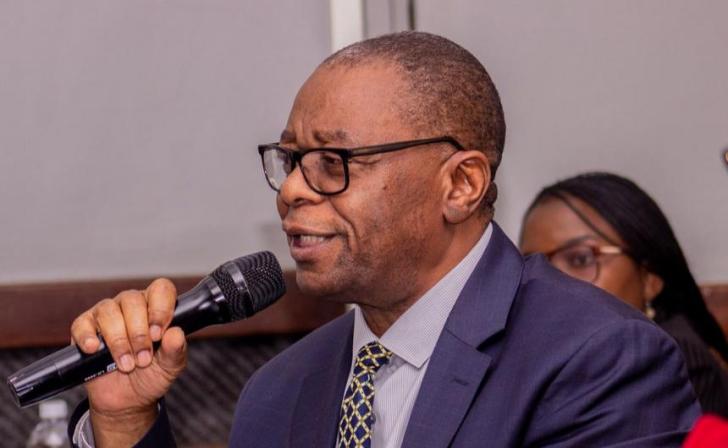News / National
Zimbabwe assures continued ARV availability
30 Jun 2025 at 14:53hrs |
0 Views

The government has reassured the public that antiretroviral (ARV) medicines will remain accessible to all who need them through the end of 2025, with plans already underway to secure supplies for the first half of 2026.
This assurance follows heightened global concern over the availability of essential medications, including ARVs, after a controversial executive order signed by United States President Donald Trump in January raised fears of disrupted international supply chains.
In a recent interview, Minister of Health and Child Care Dr Douglas Mombeshora said Zimbabwe had taken proactive measures to cushion itself against possible shortages.
"As I have said previously, we began the year with sufficient ARV stocks to last until the end of June," Dr Mombeshora said. "Following the announcement of the executive order by the United States, the Government acted swiftly by placing new orders through two suppliers to close the anticipated gap."
He confirmed that deliveries of the new stock began about four weeks ago, with full receipt expected by mid-July. "We can assure the nation that we have enough stocks for ARVs up to the end of the year. We are now working on a plan to begin procurement for the next six-month cycle, from January to June 2026."
Zimbabwe's robust response has been underpinned by domestic financing mechanisms such as the AIDS Levy, introduced in 1999, and the more recent SIN Tax on sugary drinks and unhealthy foods. These mechanisms have allowed the National AIDS Council and the Ministry of Health and Child Care to maintain a degree of financial independence from foreign donor volatility, ensuring continuous supply of essential medicines and the sustainability of HIV treatment programmes.
Health experts have welcomed the government's proactive stance, noting that any lapse in ARV supply could have serious health consequences for the more than 1.3 million Zimbabweans living with HIV.
With procurement mechanisms firmly in place and domestic funding providing a safety net, the Ministry of Health says it is confident that Zimbabwe's HIV response remains stable and resilient in the face of international uncertainty.
This assurance follows heightened global concern over the availability of essential medications, including ARVs, after a controversial executive order signed by United States President Donald Trump in January raised fears of disrupted international supply chains.
In a recent interview, Minister of Health and Child Care Dr Douglas Mombeshora said Zimbabwe had taken proactive measures to cushion itself against possible shortages.
"As I have said previously, we began the year with sufficient ARV stocks to last until the end of June," Dr Mombeshora said. "Following the announcement of the executive order by the United States, the Government acted swiftly by placing new orders through two suppliers to close the anticipated gap."
He confirmed that deliveries of the new stock began about four weeks ago, with full receipt expected by mid-July. "We can assure the nation that we have enough stocks for ARVs up to the end of the year. We are now working on a plan to begin procurement for the next six-month cycle, from January to June 2026."
Zimbabwe's robust response has been underpinned by domestic financing mechanisms such as the AIDS Levy, introduced in 1999, and the more recent SIN Tax on sugary drinks and unhealthy foods. These mechanisms have allowed the National AIDS Council and the Ministry of Health and Child Care to maintain a degree of financial independence from foreign donor volatility, ensuring continuous supply of essential medicines and the sustainability of HIV treatment programmes.
Health experts have welcomed the government's proactive stance, noting that any lapse in ARV supply could have serious health consequences for the more than 1.3 million Zimbabweans living with HIV.
With procurement mechanisms firmly in place and domestic funding providing a safety net, the Ministry of Health says it is confident that Zimbabwe's HIV response remains stable and resilient in the face of international uncertainty.
Source - The Herald
Join the discussion
Loading comments…





























